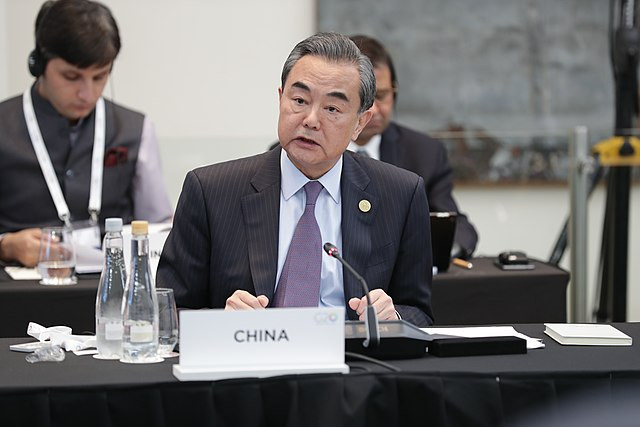China's Foreign Minister Wang Yi sharply criticized the United States' trade policies on Friday, condemning recent tariff increases on Chinese goods and warning against a global return to "the law of the jungle" under Washington's economic strategy. Speaking on the sidelines of China's annual parliamentary gathering, Wang said Beijing would "firmly counter" U.S. pressure and dismissed the tariffs as "arbitrary."
Wang's remarks follow President Donald Trump's decision to raise tariffs on Chinese imports to 20% this week, a move that has intensified tensions between the world's two largest economies. The tariffs come amid broader U.S. efforts to curb China's technological advancements and industrial ambitions.
"No country should think that it can suppress China and maintain good relations," Wang stated. He accused Washington of hypocrisy, arguing that the U.S. benefits from Chinese trade while actively working to weaken China's economic position.
The foreign minister also pointed to China's artificial intelligence sector as proof that American sanctions would fail. He referenced DeepSeek, a Chinese AI company that recently released a model rivaling top U.S. firms despite restrictions on accessing advanced semiconductors. "Where there is blockade, there is breakthrough; where there is suppression, there is innovation," Wang said.
Wang's comments reflect Beijing's growing frustration with Washington's economic policies, military presence in the Asia-Pacific, and diplomatic support for Taiwan. The South China Sea, where China has clashed with the Philippines and U.S. allies, also remained a focus of his remarks. "Those who are willing to be chess pieces will eventually be discarded," he warned, referring to what China sees as U.S. interference in regional disputes.
Chinese exports have come under significant pressure in early 2025, with customs data showing just a 2.3% year-on-year growth in January and February-well below expectations. Economists view this as a key challenge for China's goal of achieving 5% GDP growth this year.
In addition to trade, Wang rejected Trump's proposed redevelopment plan for Gaza, which has been widely criticized. "Gaza belongs to the Palestinian people," he stated, adding that China supports the Cairo summit's plan for reconstruction, which was backed by Arab leaders.
On China's relations with Europe, Wang struck a more diplomatic tone, saying "China remains confident in Europe and believes Europe can be a trustworthy partner." However, concerns persist in Beijing that Europe's alignment with the U.S. over the Ukraine war has damaged ties with China.
Regarding the ongoing war in Ukraine, Wang said China is willing to "work with the international community" to pursue peace but maintained that Beijing's relationship with Moscow remains strong. The war in Ukraine "could have been avoided," Wang stated, echoing Russia's position that NATO expansion contributed to the conflict.
Wang also criticized the United States' increased military presence in the Asia-Pacific, particularly its missile deployments near China's borders. He accused Washington of "stirring up trouble" and creating divisions in the region. He contrasted this with China's approach, which he described as "the center of stability in Asia, an engine of economic development, and a support for regional security."






